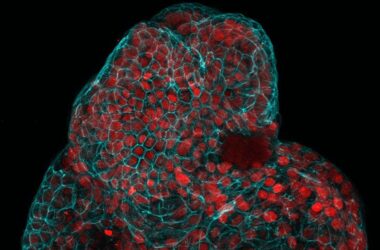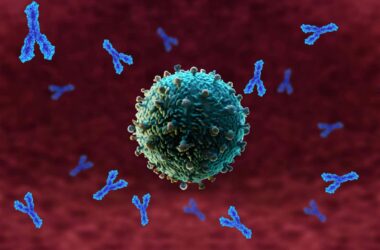Taking antioxidant supplements, such as vitamins C and E, may contribute to the growth and spread of lung cancer tumors by stimulating the formation of blood vessels within the tumors, according to a study conducted in mice. Researchers emphasize the importance of not avoiding these antioxidants in the diet for individuals with lung cancer, but excessive intake through supplements could be harmful.
A previous study by Martin Bergö at the Karolinska Institute in Sweden and his team found that supplementing with vitamin E and n-acetylcysteine antioxidants caused lung cancers in mice to spread. To further investigate this phenomenon, Bergö and a new team of researchers studied mice with a murine-specific form of lung cancer as well as mice implanted with human lung cancer cells. The mice were given water supplemented with vitamin C, which they naturally produce, as well as vitamin E and n-acetylcysteine, obtained from their diet.
The mice were given increasing doses of these supplements, resulting in antioxidant levels exceeding what was necessary. The researchers discovered that higher doses of antioxidants led to a higher rate of blood vessel formation within the tumors, both in mice with murine lung cancer and those with implanted human cancer cells. Increased blood vessel growth can potentially contribute to tumor growth and spread. However, the researchers did not study this outcome specifically.
It is important to note that individuals with any form of cancer should not alter their diet based solely on this research. Bergö emphasizes that removing antioxidants from one’s diet completely can have negative health consequences due to vitamin deficiencies, which can also impact cancer. The focus of the study is on high supplemented doses above the required levels.
In a separate part of the experiment, the researchers exposed human and mice lung cancer tumor organoids (balls of cells grown in a lab) to higher-than-necessary doses of the three antioxidants. They found that the antioxidants neutralized free oxygen radicals within the organoids.
In previous research, Bergö and his team identified a protein called BACH1 that contributes to increased tumor growth following vitamin E and n-acetylcysteine supplements. The latest study suggests that BACH1 is activated when levels of free oxygen radicals drop, resulting in the formation of blood vessels. This finding could pave the way for exploring new treatment options for certain cancers. Blood vessel growth inhibitors are commonly used in cancer treatments but can have severe side effects like blood clots. The inhibitors may be more effective in individuals with high BACH1 levels in their tumors, which can be caused by both supplements and mutations.
Although the experiments focused on lung cancer tumors, the researchers also investigated genomic databases for other types of cancers that might have elevated BACH1 levels. They discovered that kidney and breast tumors often exhibited high BACH1 levels. This suggests that blood vessel growth inhibitors could also be effective in targeting these conditions in individuals with high BACH1 levels, which can be identified through screening.








